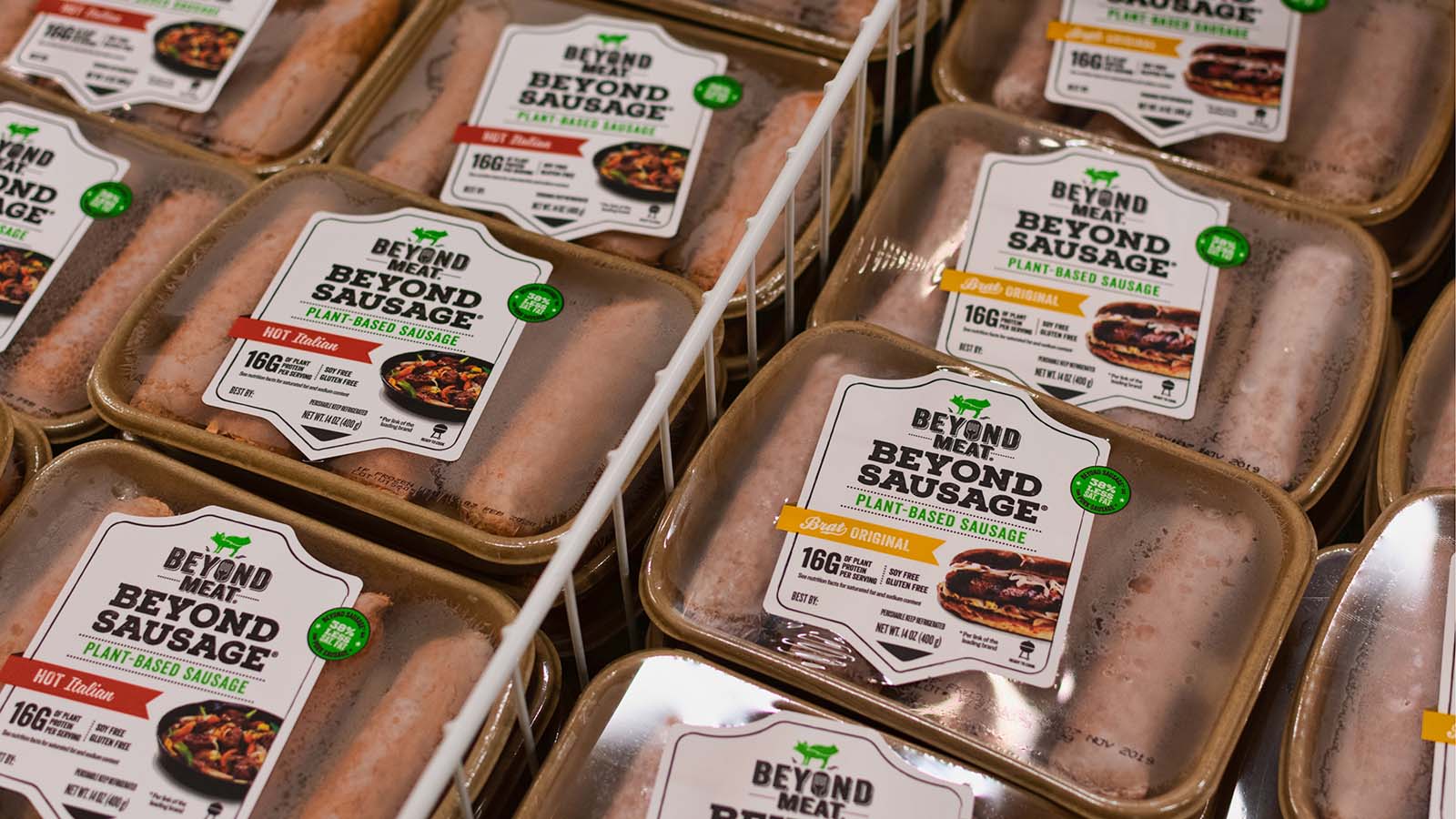Recently, my good friend Talal paraphrased a common adage: the devil you know is better than the angel you don’t. I think this is a perfect description for Beyond Meat (NASDAQ:BYND). While it might be tempting to jump on the heavily-discounted BYND stock price, investors should exercise vigilance. Short-term gains are possible, but lurking in the shadows are serious longer-term risks.
On the surface, Beyond Meat stock appears the savior of those who relish red meat but hate its consequences. As we’ve all been taught, good nutrition is about balance. However, you can never go wrong with eating an assortment of fresh vegetables. Obviously, you can go wrong eating burgers and french fries all day.
Beyond Meat, though, takes the revolutionary step of providing a meat alternative. From the company’s various advertising campaigns, the texture and the taste of Beyond Meat’s hamburger products are true to the satisfying heartiness of a ground beef patty. But the kicker is that it’s not meat. Instead, it’s a proprietary mixture of various ingredients, none of them animal-based proteins.
Thus, you can also say that BYND stock is a feel-good investment: if we eat this stuff, we’ll never have to kill an innocent animal.
That all sounds good on paper. But in reality, vigorous debate exists as to alternative meats’ health implications. As I mentioned before, Beyond Meat foods are highly processed. And we all know about the damage processed foods cause.
Therefore, I’d rather buy the real deal. While Beyond Meat’s concept is compelling, it’s also an experiment. Short-term, I only see a bullish case for holiday sales. Otherwise, here are three big, longer-term risks facing Beyond Meat stock.
Possible Legal Issues for BYND Stock
When I was shopping at my local Kroger’s (NYSE:KR) store, I noticed that the grocer put Beyond Meat products right in the meat section. From a stakeholder’s perspective, this is brilliant organic marketing for Beyond Meat stock. After all, the company’s products are duplicating red meat. Why shouldn’t they have placement in the meat section?
Spiritually, I understand the above argument. However, we live in a litigious society. Unfortunately, people and companies get cranky over the smallest details. That said, I don’t think this placement issue is inconsequential. Legally, can you sell fake meat as de facto real meat?
Most customers won’t give a hoot. However, the traditional food companies might. Moreover, a strong precedent exists for traditional competitors making some noise. Recall that the diary industry has long battled with non-diary milk producers. Their grievance makes sense: if it’s not milk, you can’t call it milk or imply that it is.
Even former Food and Drug Administration commissioner Dr. Scott Gottlieb commented that almond milk wasn’t really milk because “an almond doesn’t lactate.”
Based on this recent precedent, I expect legal pushback against Beyond Meat, hurting the BYND stock price.
Liability Risks from Misled People
In August of this year, the Center for Consumer Freedom ran a scare campaign against Beyond Meat. Admittedly, their slogan is catchy: “Fake Meat, Real Chemicals.”
Naturally, Beyond Meat has fought back against the charge that their products are unhealthy. According to company CEO Ethan Brown, alternative meats are about consumer choices and awareness. In his words, the “media has an obligation” to report the truth about plant-based meats, not propaganda.
But the irony of pushing the health narrative for BYND is that it risks liability for Beyond Meat stock. Let’s say for example that someone with chronic heart disease or kidney disease buys fake meat under the assumption that they’re eating vegetables. If the heavily-processed ingredients in Beyond Meat exacerbates their condition, that’s a serious legal issue.
While medical studies suggest that pea proteins (a key ingredient of Beyond Meat foods) may be helpful for organ functionalities and blood pressure management, excess cholesterol, sodium and exotic chemicals surely are not. And in processed form, the nutritional value of certain vegetables may be deleted.
Therefore, riding this health narrative is risky for BYND stock, especially regarding potential liability involving chronic diseases or specialized needs.
Political Correctness and the Genetic Risk
Typically, in the U.S., you’ll hear that race is a social construct. As a minority and an immigrant, I find this euphemism ridiculous. It’s akin to saying height is a social construct to make shorter people – excuse me, vertically challenged people – feel better.
Most of the time, political correctness is nonsense that you can ignore. But with BYND stock, I don’t think you can.
Listen, I’m 100% American. But genetically, I’m 100% Japanese. After I took the oath of allegiance to the U.S., my genetic constitution remained the same. Rather than pretend race is a social construct, I embrace my difference: it actually keeps me alive.
For instance, I marvel at my native-born American friends who can eat McDonald’s (NYSE:MCD) every day and not die. Because of my different genetics, I cannot do the same. I have the facts to prove it. According to New York Times contributor Bruce Grierson:
Plenty of examples bear out this ill fit between certain cultures and certain diets — suggesting, if not quite proving, some interplay of genes and nutrition: the Japanese who relocated to the United States after World War II soon saw their cholesterol levels soar…
That’s just cholesterol. What happens if we introduce a processed, artificial food source to other communities, countries and people groups? Maybe nothing. Or maybe, it could create a health impact on a greater scale than what happened to my Japanese-American compatriots.
Either way, I’d rather dine with the devil I know.
As of this writing, Josh Enomoto did not hold a position in any of the aforementioned securities.

